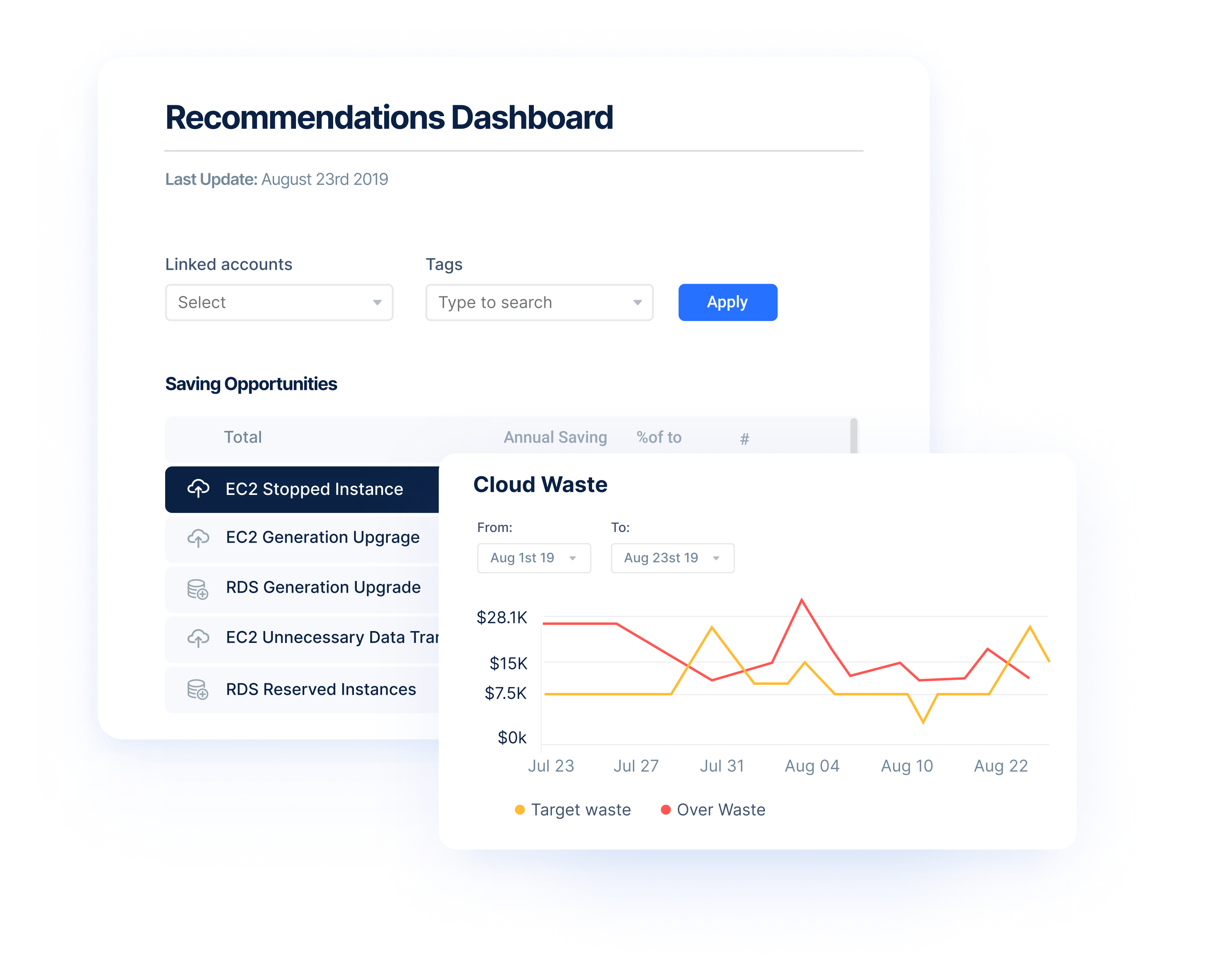Working with the suite of AWS services requires making a lot of choices. One of them is deciding which storage option is best for your use cases and cloud budget.
Amazon Elastic Block Store (Amazon EBS) is the most widely-used cloud storage service. The easy-to-use and scalable block storage is designed specifically for us with EC2 instances.
Think of an EBS block device as an external hard drive attached to your system that can be formatted to whatever file system is required.
The storage devices are called Amazon EBS volumes. Once attached, users can create a file system on top of the volumes, run a database, or use them the way you would use block storage.
Because storage services like Elastic Block Store can represent a significant portion of an AWS bill, it’s wise for organizations to adopt comprehensive cloud cost management strategies to make the most of storage spend.
Benefits of EBS volumes
EBS volumes provide benefits that are not available by instance store volumes, including:
High availability – EBS is designed to be highly available and reliable for mission-critical applications. When an EBS volume is created, it is automatically replicated within its Availability Zone to prevent data loss.
Scalability – EBS lets users increase storage without affecting critical workloads. The ability to quickly scale up or down, companies can get the right performance and capacity for changing needs.
Reliable backup and restoration – Point-in-time volume snapshots can be automated using EBS Snapshots along with Amazon Data Lifecycle Manager for simple backups.
EBS Cost Drivers
Understanding the cost drivers of EBS storage is an important first step to managing and controlling spend. EBS pricing can vary widely and its cost drivers are influenced by a number of factors, including:
EBS volume types
- General purpose SSD
General-purpose SSD (solid state drives) are recommended for most use cases by Amazon and provide a balance between performance and cost. Use cases include virtual desktops, apps, dev, and testing environments.
- Provisioned IOPS SSD
Provisioned IOPS SSD volumes are used for workloads that require high throughput and performance, and lower latency. Relevant use cases include large databases and business applications that require high throughput.
- Throughput optimized HDD
Throughput optimized HDD (hard disk drives) volume offers low-cost storage while fulfilling the need for sequential workloads that require more throughput. Example use cases include big data applications, data warehousing and streaming workloads.
- Cold HDD
Cold HDD is another type of hard disk drive offered by AWS for less frequently accessed workloads but through higher throughput. It’s a low-cost alternative for use cases with a requirement to maintain minimal spend for large volume data storage.
Volume storage hours
A certain amount of storage is allocated to each EBS Volume when it is created. That means the main cost of an EBS Volume is the result of the hours you are using an EBS Volume and the size you want to allocate.
Provisioned IOPS
Certain EBS Volume types allow you to specify an amount provisioned input/output operations (IOPS) per second. These types are charged by the amount of storage that is provisioned, even if the amount is not fully utilized.
Total EBS Snapshot size
EBS Snapshots are used to create point-in-time copies of your data that reside in the underlying storage volume. EBS Snapshots are stored incrementally, which means you are only billed for the changed blocks that are stored.
EBS Snapshot API requests
Users are changed for the amount of API calls that are made for EBS Snapshots. The charges are in increments of thousands of API requests.
Optimize EBS costs with Anodot
Anodot’s Cloud Cost Management solution makes optimization easy. It can easily connect to AWS, Azure and GCP to monitor and manage your spending. Even with multi-cloud environments, Anodot seamlessly combines all cloud spending into a single platform allowing for a holistic approach to optimization measures.
Anodot also offers specific easy-to-action cost-saving recommendations specifically for EBS.
Amazon EBS management
- EBS Unattached
- EBS Type Change
Amazon EBS rightsizing
- EBS upgrade
- EBS outdated snapshot

Anodot’s personalized insights and savings recommendations are continuously updated to consider the newest releases from major cloud providers, including AWS. Anodot helps FinOps teams prioritize recommendations by justifying their impact with a projected performance and savings impact.
What makes Anodot unique is how it learns each service usage pattern, considering essential factors like seasonality to establish a baseline of expected behavior. By detecting anomalies in real time, Anodot can identify irregular cloud spend and usage and provide contextualized alerts to relevant teams so they can resolve issues immediately.
Proprietary ML-based algorithms offer deep root cause analysis and clear guidance on the steps for remediation. Customers are already using Anodot to align FinOps, DevOps, and finance teams’ efforts to optimize cloud spending.
Start optimizing your cloud costs today!
Connect with one of our cloud cost management specialists to learn how Anodot can help your organization control costs, optimize resources and reduce cloud waste.




